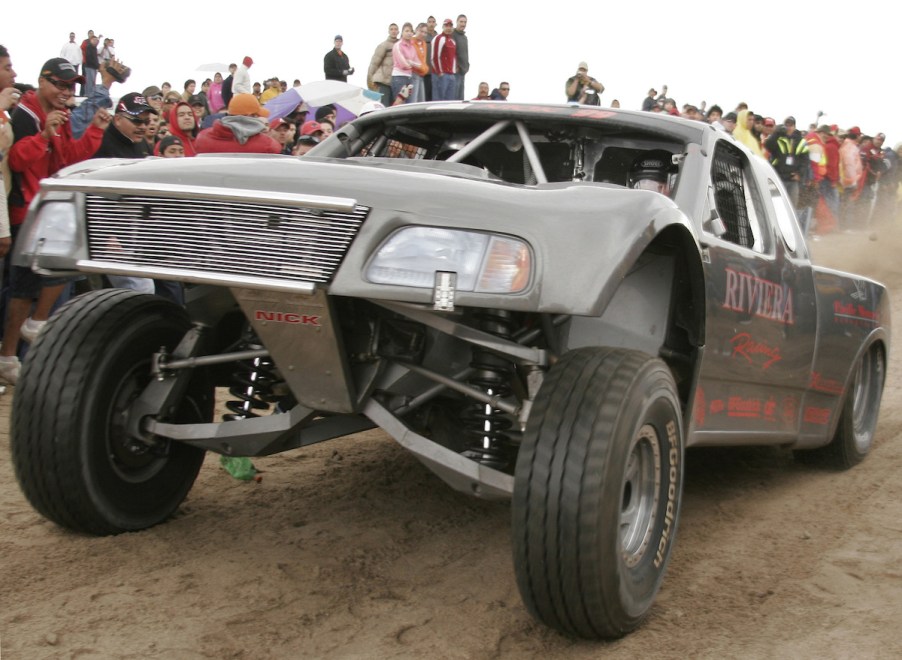
Why Was the ‘Carolina Squat’ Banned in North Carolina and Virginia?
The “Carolina squat” is a term used to describe a trend in custom trucks and SUVs. Many enthusiasts have “squatted” their trucks by lowering the back end and lifting the front, giving the vehicles a unique appearance. However, North Carolina and Virginia banned extreme modifications, and South Carolina is trying to follow suit. Here’s why.
The start of squatted trucks

This trend began as a way for people to customize their vehicles and express their style. The Carolina squat gained popularity in North and South Carolina due to its affordability and accessibility. Many drivers could lower their trucks themselves or find someone to do it at a low cost. As more people began squatting their trucks, they became increasingly visible on roads in both states.
Another reason drivers squat their trucks? “Baja racers squatted trucks because when they fly over a jump and crash onto the earth, the rear hits first,” Way.com explains. “The reason behind this was that it would help avoid major accidents. Racers can then do daring leaps without the danger of collapsing.”
Why did North Carolina and Virginia ban certain Carolina squat modifications?
In 2020, a Change.org petition urged North Carolina Gov. Roy Cooper to make squatted trucks illegal due to safety concerns. After reviewing the petition, Cooper implemented new regulations prohibiting modifications that decreased headlight height or increased tailgate height above certain thresholds. Following the governor’s decision, Virginia passed similar legislation making extremely squatted trucks illegal in March 2022.
Here’s why squatted trucks are dangerous
Despite their visual appeal, squatted trucks can be dangerous to their drivers, other motorists, and pedestrians. Extreme modifications can damage suspension components and braking systems, making them harder to control in poor weather conditions like heavy rain or snow. The Carolina squat also makes towing extremely difficult, especially on highways.
“If a squat truck collides with the side of another vehicle, an upward force is applied to the side of the struck vehicle, making rollover accidents more likely to happen,” Steinberg Law Firm explains. “Head-on collisions with squat trucks are also more dangerous because the crashed vehicle will submerge underneath the truck, colliding with the low-reared portion of the vehicle’s base frame.”
Another reason squatted trucks can be dangerous? Their headlights often aim away from the road when the modification is done incorrectly. That further decreases visibility during nighttime driving.
Think twice before making extreme modifications
Some enthusiasts still find ways around these laws by squatting illegally, but doing so opens these drivers and others to the risks associated with extreme modifications.
If you want your custom truck to stand out while remaining legal and safe on public roads, consider options like adding custom rims or changing the paint job.
No matter what you decide in terms of truck customization, remember that safety is paramount when operating any vehicle, squatted or not.



